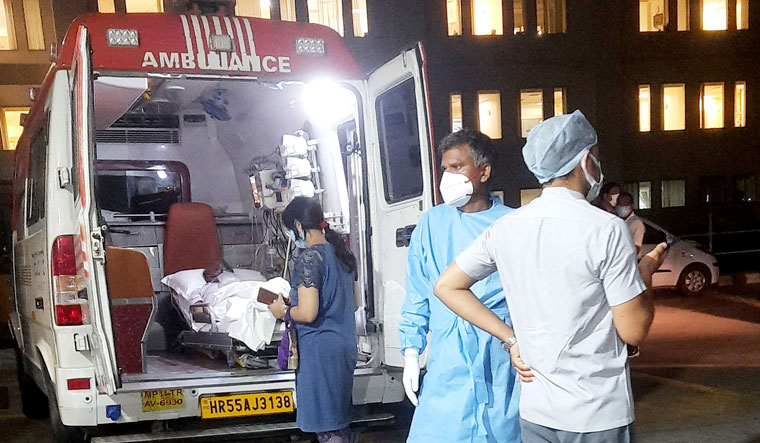National and interstate networks of law enforcement agencies used to track terrorists and criminals have come in handy when the second wave of COVID-19 pandemic has created a huge vulnerable section of orphans, families with missing persons and unidentified dead bodies across the country. The union home ministry has written to states and union territories to use national and inter-state platforms and internet-based services created by state police forces, to launch search and data matching exercises to identify the missing people, unidentified dead bodies and orphans.
The Centre is asking also States and Union Territories to undertake an immediate review of existing facilities for vulnerable groups, especially for children who have been orphaned, senior citizens who may require timely assistance and support, medical as well as safety and security and members of the Scheduled Castes Scheduled Tribes who may need guidance to access Government support facilities.
The Ministry of Health Administration has said the state police forces should use an automated photo-matching web-based application like UNIFY that uses the Machine Learning model to enable police personnel to search photographs of missing persons, unidentified dead bodies against the national image repository in the Crime and Criminal Tracking Network (CCTNS).
The CCTNS, conceived in the aftermath of the 26/11 terror attacks by the MHA, is an integrated system for enhancing the efficiency and efficacy of policing at all levels; especially at the Police Station level, through the adoption of principles of e-Governance, and the creation of a nationwide networked infrastructure for evolution of IT-enabled state-of-the-art tracking system.
At the macro-level, it is aimed to provide Enhanced Tools for Investigation, Crime Prevention, Law and Order Maintenance and Increase Operational Efficiency by a reduction in manual processes, and at the micro-level, it was aimed at making police functioning transparent, effective and efficient through improved delivery of citizens-centric services.
The MHA’s CCTNS project and the state web-based applications will face a litmus test when they are put to use to help citizens find their family members, identify the deceased and track orphans across states.
The Home Ministry in its letter to states said that the National Crime Records Bureau has released several tools to States and Union Territories to facilitate this activity, such as the Crime Multi Centre Agency (Cri-MAC) for police to share inter-state information; online National Alert Service for police on missing and found persons using the CCTNS and the automated photo-matching web-based application UNIFY.
“The MHA has requested the States and Union Territories to create greater awareness on the central citizen service for missing persons which is available online,” said a home ministry spokesperson.
The ministry also said it has been giving high priority on preventing and combating crimes against vulnerable sections of society, including women, children, senior citizens and Scheduled Castes and Scheduled Tribes, and as well as for putting in place institutional mechanisms for preventing and countering human trafficking.
“Taking into account the impact of the second wave of the COVID-19 pandemic particularly on vulnerable groups, the MHA has again reiterated to States and Union Territories to focus on vulnerable sections, especially children who may have been orphaned due to loss of parents due to COVID-19,” it said.
The MHA has asked States and Union Territories for sensitisation of police personnel, coordination with various line Departments and Agencies concerned to effectively deploy the Women Help Desk in Police Stations and Anti-Human Trafficking Units in Districts. The MHA also referred to the recent SOPs issued for the safety of transgenders during COVID-19.
The MHA’s latest move comes in the backdrop of bodies like the National Human Rights Commission closely following the mounting cases of violations of human rights of vulnerable sections of society and has been repeatedly writing to the Central ministries and state governments for action taken reports and immediate redressal of grievances.





